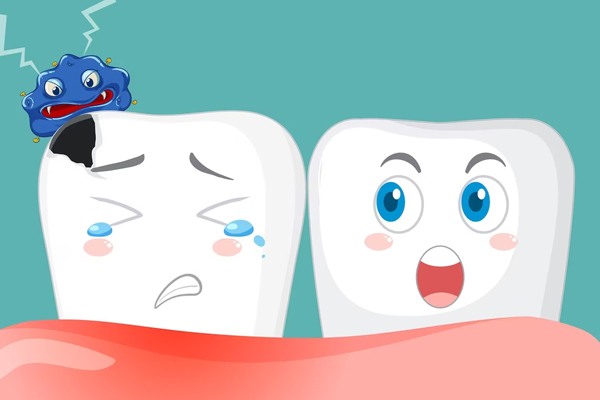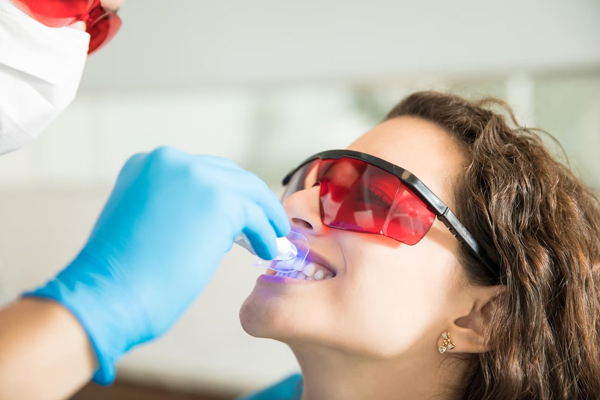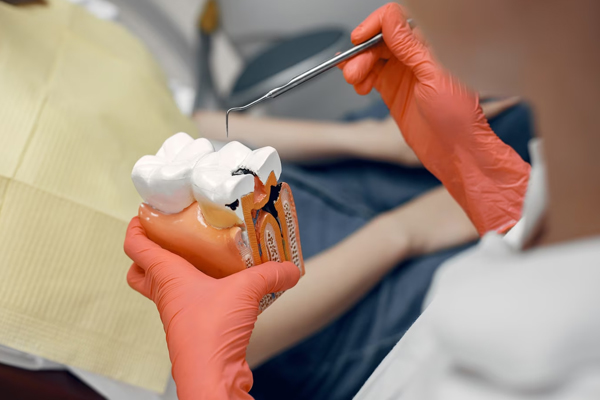When it comes to discussing beverages that can potentially stain our teeth, tea often takes center stage. Its reputation for leaving stubborn marks on enamel has been well-documented. Yet, curiously, the impact of beer on dental aesthetics is an area that receives significantly less attention. Is beer bad for your teeth? Does beer stain teeth?
In a world where oral health is a priority, it’s time to unravel the mystery surrounding beer and its alleged effects on our smiles. As we raise our glasses in celebration or relaxation, the question lingers: Does beer stain teeth in the same way tea does?
Does Beer Make Your Teeth Yellow?
Yes, beer can contribute to teeth yellowing. Beer contains acids and tannins, which can erode tooth enamel over time. Additionally, some types of beer, particularly darker ones, may have pigments that can potentially stain teeth.

However, the degree to which beer affects tooth color can vary depending on factors such as how frequently it’s consumed, the overall oral hygiene of the individual, and their genetic predisposition to tooth staining.
To minimize the risk of teeth yellowing from beer or other beverages, it’s a good practice to:
- Maintain Good Oral Hygiene: Regular brushing, flossing, and dental check-ups can help prevent staining and enamel erosion.
- Moderate Consumption: Reducing the frequency and amount of beer consumption can mitigate its potential impact on teeth.
- Use a Straw: Drinking through a straw can help minimize direct contact between the beer and your teeth.
- Rinse with Water: After consuming beer, swishing water around your mouth can help wash away residues and reduce the risk of staining.
- Practice Moderation: Limiting the consumption of highly acidic or staining beverages, including beer, can help maintain a brighter smile.
Is Beer Bad for Your Teeth?
Moderation is key, and moderate beer consumption is not really harmful to your teeth. However, excessive and frequent consumption of beer can have negative effects on your oral health. Here are some potential dental concerns associated with excessive beer consumption:

- Tooth Decay: Beer contains sugars that can contribute to tooth decay if left on the teeth. Additionally, the acids in beer can erode tooth enamel, leading to cavities over time.
- Staining: Some types of beer, especially darker varieties, can contain pigments that may stain teeth if consumed regularly.
- Dry Mouth: Alcohol, including beer, can lead to dry mouth (xerostomia), which reduces saliva production. Saliva helps neutralize acids and protect against tooth decay. A dry mouth environment can increase the risk of dental problems.
- Oral Cancer: Chronic heavy alcohol consumption, including beer, is a risk factor for oral cancer. Prolonged exposure to alcohol can irritate and damage the tissues in the mouth and throat.
- Gum Disease: Excessive alcohol consumption can weaken the body’s immune system, making it more susceptible to infections, including gum disease.
Can You Drink Beer After Teeth Whitening
It’s generally advisable to avoid drinking beer or any colored or acidic beverages immediately after teeth whitening. After a teeth whitening procedure, your teeth are more susceptible to staining for a period of time.
This is because the whitening process temporarily opens up the pores in your tooth enamel, making it easier for substances to penetrate and potentially stain your teeth.

Here are some guidelines to consider after teeth whitening:
- Immediate Post-Whitening Period: For the first 24-48 hours after teeth whitening, it’s best to avoid any foods or beverages that could stain your teeth. This includes beer, red wine, coffee, tea, and colored sodas.
- Clear Liquids: If you wish to consume a beverage, opt for clear, non-staining liquids like water during the initial post-whitening period.
- White or Light-Colored Foods: Stick to white or light-colored foods like plain chicken, rice, and pasta during this time to minimize the risk of staining.
- Good Oral Hygiene: Maintain your regular oral hygiene routine, including brushing and flossing, but be gentle to avoid irritation.
- Follow Professional Advice: If you’ve undergone a professional teeth whitening procedure, it’s crucial to follow any specific post-whitening instructions provided by your dentist.
The duration of this post-whitening period may vary depending on the type of whitening treatment used, so it’s essential to consult with your dentist or follow their recommendations for when it’s safe to resume consuming beverages like beer without risking staining your newly whitened teeth.
Keep in mind that if you’re concerned about the impact of beer or other beverages on your teeth’s whiteness in the long term, it’s a good practice to moderate your consumption and practice good oral hygiene to maintain a bright smile.
Can Your Drink Beer After Wisdom Teeth Removal
After having your wisdom teeth removed it’s generally advisable to avoid alcoholic beverages like beer for a few days during the initial recovery period. Here are some reasons why it’s best to avoid drinking beer after wisdom teeth removal:

- Pain Medications: After the procedure, you may be prescribed pain medications or antibiotics. Drinking beer while taking these medications can have adverse effects, including increased drowsiness, dizziness, and potential interactions.
- Impaired Judgment: Alcohol can impair judgment and coordination. After surgery, it’s important to be alert and cautious to avoid accidents or injury.
- Dry Socket Risk: Alcohol can contribute to dehydration, which may increase the risk of developing a dry socket. A dry socket is a painful condition that can occur after tooth extraction when the blood clot that forms in the socket is dislodged or dissolves prematurely. It’s best to stay hydrated with water and avoid substances that can dehydrate you, like alcohol.
- Delay in Healing: Alcohol can slow down the body’s natural healing processes. It’s crucial to allow your body time to heal properly after wisdom teeth removal.
- Oral Care: Alcohol can irritate the surgical site and hinder proper oral care, such as rinsing your mouth with saltwater or following any post-operative instructions provided by your oral surgeon.
It’s essential to follow your oral surgeon’s post-operative care instructions carefully. They will provide guidance on when it is safe to resume normal eating and drinking habits, including alcohol consumption.
Typically, you should avoid beer and alcohol for at least the first 24-48 hours after wisdom teeth removal, or as recommended by your surgeon. Be sure to stay well-hydrated with water during this time to aid in the healing process.
As always, if you have specific concerns or questions about your recovery, it’s best to consult with your oral surgeon or dentist for personalized advice based on your individual circumstances.
Conclusion Summary
The impact of beer on your teeth is a matter that should be approached with a sense of balance and moderation. While beer does contain acids and pigments that can potentially stain teeth and contribute to yellowing over time, it’s important to remember that the degree of effect varies from person to person.
Moreover, the timing of your beer consumption matters in specific situations. After wisdom teeth removal or teeth whitening procedures, it’s advisable to temporarily abstain from beer and other potentially staining or acidic beverages to ensure a smooth recovery and preserve your newly whitened smile.

